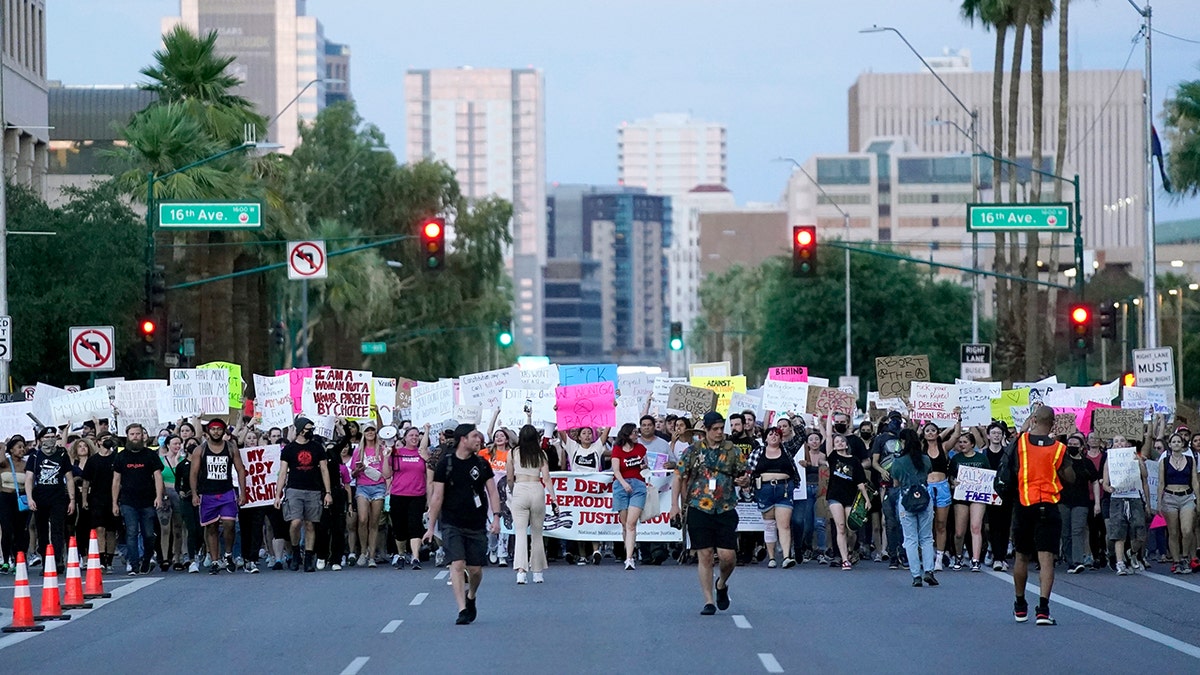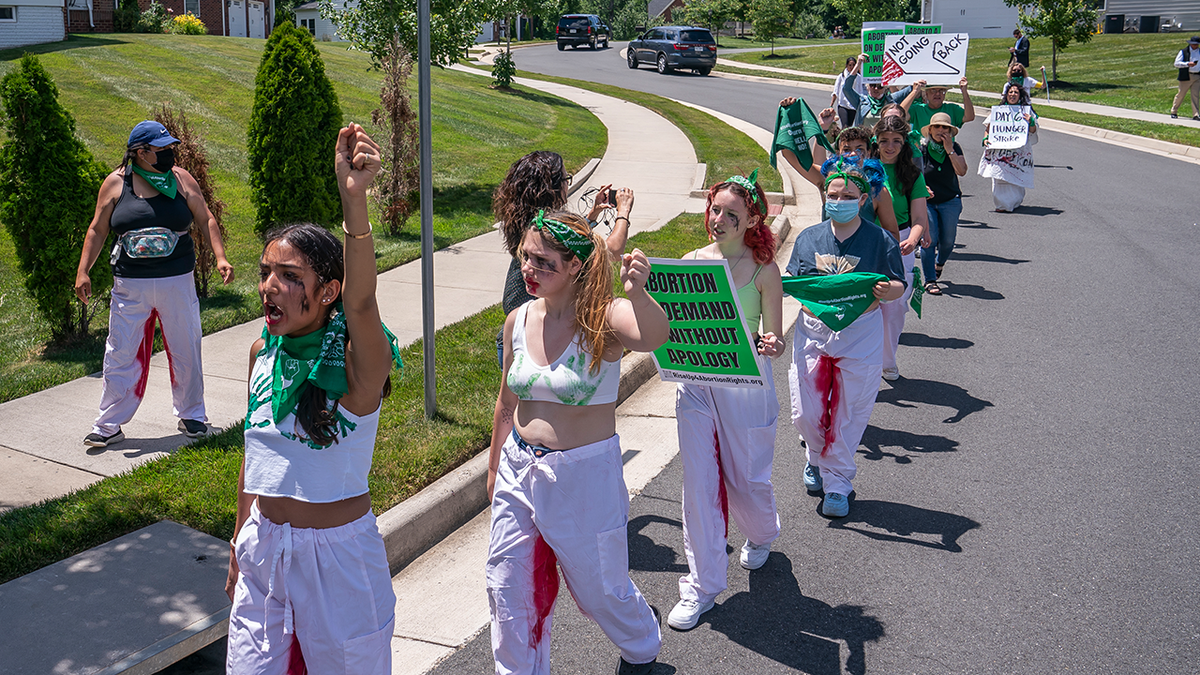Fox News Flash top headlines for July 11
Fox News Flash top headlines are here. Check out what's clicking on Foxnews.com.
A federal judge temporarily blocked an Arizona law on Monday that had required the state to interpret all laws to grant civil rights to unborn children.
U.S. District Court Judge Douglas Rayes ruled that the 2021 Arizona law's "personhood" provision was too vague, making it difficult for the plaintiffs in the case to do their work as physicians in accordance with the law, thus violating their due process rights.
Rayes also wrote that the defendants were unable to prove the policy would not cause injury because of its vagueness in regard to abortion access.
"A law is unconstitutionally vague if its application is so unclear that people of ordinary intelligence cannot figure out in advance how to comply with it," the judge wrote in his opinion.
FILMMAKERS MOVE PRODUCTION OUT OF ARKANSAS OVER STATE'S ABORTION TRIGGER LAW

Protesters shout as they join thousands marching around the Arizona Capitol after the Supreme Court decision to overturn the landmark Roe v. Wade abortion decision Friday, June 24, 2022, in Phoenix. (AP Photo/Ross D. Franklin)
He added that granting an unborn baby the same rights as other people may constitute an abortion as a homicide.
The Arizona law, which was passed in April 2021, said all state laws "shall be interpreted and construed to acknowledge, on behalf of an unborn child at every stage of development, all rights, privileges and immunities available to other persons, citizens and residents of this state." The law also prohibited women from receiving an abortion because of the sex, race or genetic abnormality of the baby.
The measure would face legal challenges, and the U.S. District Court last year issued a partial preliminary injunction.
The U.S. District Court had blocked the portion of the law prohibiting abortions sought because an unborn child had a survivable genetic abnormality. The court at the time elected not to place the "personhood" provision on hold.
ARIZONA ACLU FILES MOTION TO BLOCK STATE ‘PERSONHOOD’ ABORTION LAW FOLLOWING SCOTUS RULING

Thousands of protesters march around the Arizona Capitol after the Supreme Court decision to overturn the landmark Roe v. Wade abortion decision Friday, June 24, 2022, in Phoenix. (AP Photo/Ross D. Franklin)
Legal proceedings pertaining to the Arizona law would then resume following the Supreme Court's decision last month to overturn Roe v. Wade, which gave states the authority to make their own abortion laws.
Defendants filed a new motion and the U.S. District Court was urged to reconsider the case after the Supreme Court’s ruling on abortion.
Rayes said it is unclear what impact the "personhood" law would have on other state laws, noting two existing abortion laws in Arizona — one from 1901 that bans nearly all abortions and one signed earlier this year that prohibits the procedure after 15 weeks. They both allow exceptions in cases where the mother's life is at risk.

Abortion-rights activists with Rise Up 4 Abortion Rights chant after marching to the home of Supreme Court Justice Amy Coney Barrett on June 18, 2022 in Falls Church, Virginia. (Photo by Nathan Howard/Getty Images) (Getty Images )
Under the "personhood" law, it remains unclear if even a legal abortion would be considered a crime, Rayes wrote.
He said some prohibitions on assault, child endangerment, and child abuse under Arizona's criminal code do not contain "explicit exemptions" for legal abortions, which would leave providers "left to guess whether their conduct could be criminalized under a maximalist application" of the "personhood" law.
CLICK HERE TO GET THE FOX NEWS APP
Rayes' ruling comes after Arizona Assistant Solicitor General Kate Sawyer said in court Friday that the "personhood" law cannot be used to bring criminal charges against abortion providers.



